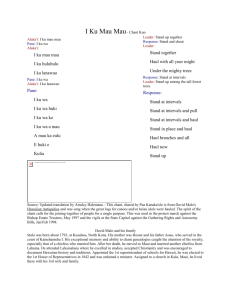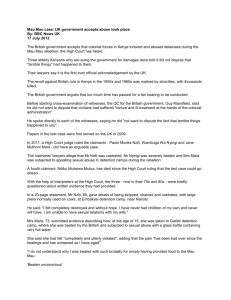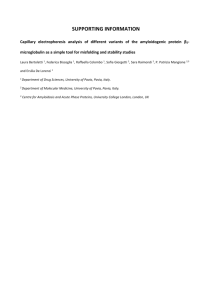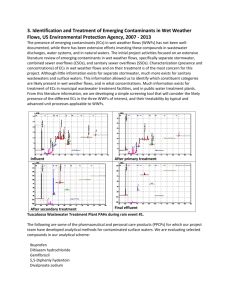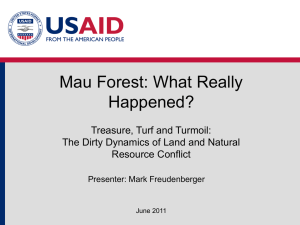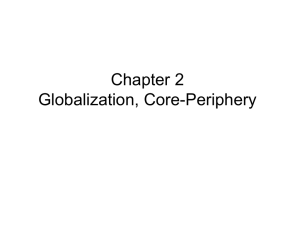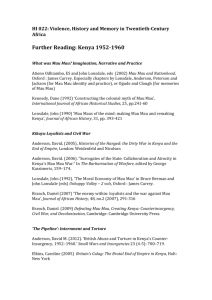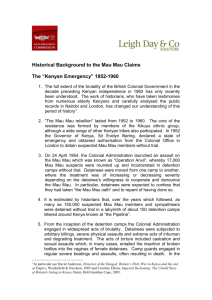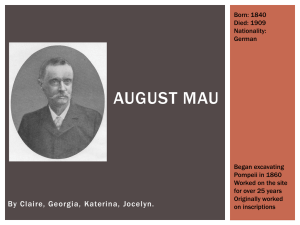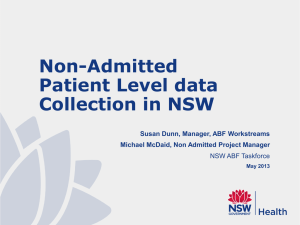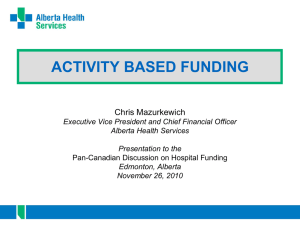Stephen Cole, Gold
advertisement
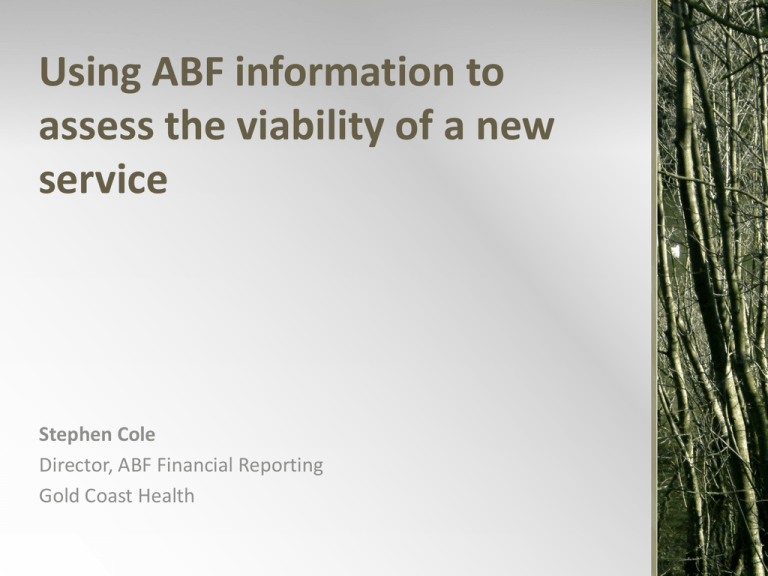
Using ABF information to assess the viability of a new service Stephen Cole Director, ABF Financial Reporting Gold Coast Health Objectives of ABF Analysis Challenge of a new service: Are we providing quality care Are we getting value for money ABF can assist by demonstrating Efficiency of a new service Existing tools can reinforce this by providing Statistical evidence Provide KPIs To support introduction of other new services Why a Medical Assessment Unit Meet the National NEAT targets Address increasing number ED presentations Decrease incidence of delayed ambulance off load Earlier Medical Consultation To provide cost effective care Prevention of unplanned complex discharges Reduce length of stay, readmissions, mortality and morbidity rates Improve weekend discharge rate Helen Cooper DDON Medicine HRT Innovation Awards 2012 Key Changes Implemented The MAU is a 28 bed unit with 10 hard wired cardiac monitors and 18 telemetry units. Length of stay (LOS) is a maximum of 48hrs, average MAU LOS is approx 19 hours The MAU has seen 9020 admissions in just over twelve months. An average of 24 admissions a day Clinical Nurse Consultant led acceptance of referrals from ED On duty dedicated General Physician, two consultant ward rounds daily Seven day a week Allied Health team 24/7 administration support Dedicated support service staff Early discharge supported by daily medical outpatient clinics Priority for medical imaging, pathology and clinical measurements Helen Cooper DDON Medicine HRT Innovation Awards 2012 Key Changes Implemented Helen Cooper DDON Medicine HRT Innovation Awards 2012 The Problem UK model Not comparable to any similar MAU model in Queensland Expensive Approximately twice the FTEs per bed of conventional Acute Medical Unit Pervasive It impacted on a number of areas within the hospital Challenges for analysis Difficult to isolate the impact Cannot be isolated from other medical wards Look at performance prior and post implementation Requires consistency in: • Costing processes • ABF weights Limited timeframe for analysis Precluded detailed analysis of ABF data • Multivariate analysis. Tools and Analysis Tools Transition II (SDSM) costing information Microsoft Excel 2003/2010 Analysis Standard descriptive stats Comparison costs Statistical Analysis • T-Test How was it performing Length of stay changes Cost per bed day How many WAUs per patient bedday Cost per WAU Cost of transferred patients Length of stay changes Implementation of MAU Implementation of MAU Implementation of MAU Cost per bed day Implementation of MAU Cost per exact bed day Implementation of MAU How many WAUs per patient bed day Implementation of MAU Cost per WAU Implementation of MAU Cost per WAU 2 sample t-Test (assuming unequal variances) Medical admissions Robina Hospital 2012 only before Mean Variance Observations Hypothesized Mean Difference $4,776.802958 14530024.19 1082 0 df t Stat 1404 6.89649054071710 P(T<=t) one-tail 0.00000000000402 t Critical one-tail 1.64593965343783 P(T<=t) two-tail 0.00000000000804 t Critical two-tail 1.96165506919397 after $3,923.009 13040258 6871 Cost of transferred patients Lessons Use exact LOS if available Use cost per WAU Don’t straddle years/major changes if possible Use the tools you have available Outcomes MAU is being trialled at Gold Coast Hospital Southport In preparation for move to Gold Coast University Hospital Robina Hospital is consistently meeting NEAT targets Stephen Cole Director, ABF Financial Reporting Gold Coast Health stephen_cole@health.qld.gov.au Questions
